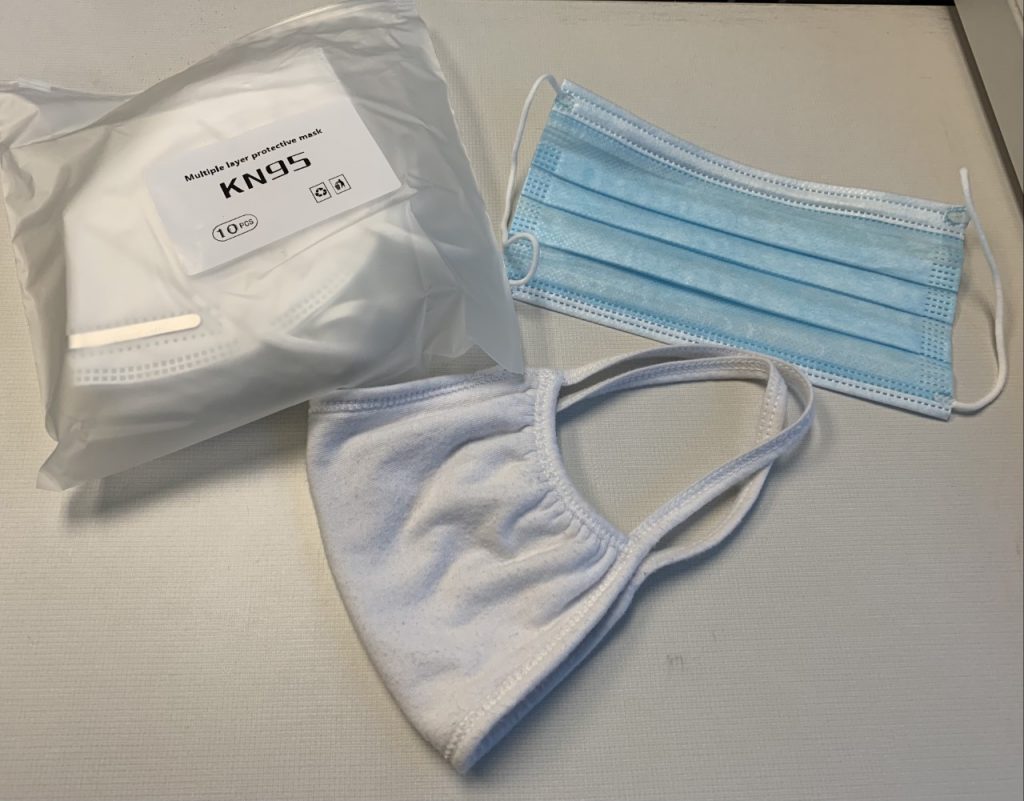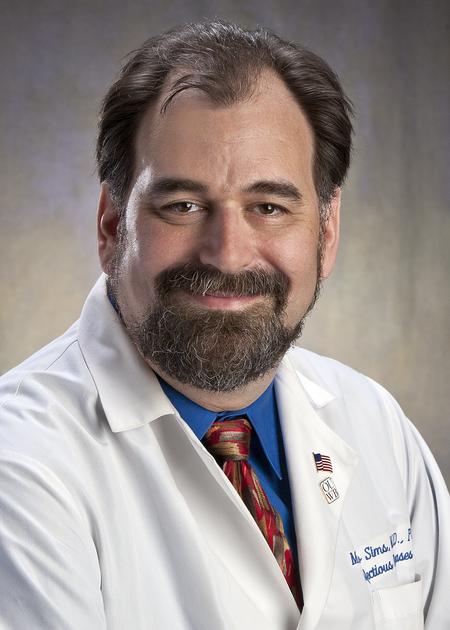Beaumont Study Confirms Masks Reduce COVID-19 Risk
The data are based on employee blood samples, and describes which types of masks work best.

One of the nation’s largest serological studies of COVID-19 confirms what health experts have been saying since the pandemic began — masks work.
Beaumont Health drew voluntary blood samples from more than 20,000 of its employees between April 13 and May 28, 2020. Scientists were looking for COVID-19 antibodies, hoping to find out whether they offered immunity from future infections. While the study has not reached a conclusion on that yet, it has revealed that masks significantly reduced the risk of infection.
“Is it perfect? No. Nobody’s suggesting that masking will 100% stop COVID, but it will reduce it significantly.” — Dr. Matthew Sims on the effectiveness of masks.
The findings have been published in the journal Clinical Infectious Diseases.
Dr. Matthew Sims is Beaumont’s head of infectious disease research. He says the data show that better-quality masks offer better protection.
Listen: Dr. Matthew Sims explains why masks significantly reduce the risk of transmitting and contracting COVID-19
“People who were not masked when they were exposed to COVID-19 patients were between 17% and 18% likely to develop antibodies against COVID,” Sims says. “For people who wore a surgical mask, it was down closer to 14%, and people who wore an N-95 mask, it was down around 10%.”

Of those who got infected despite wearing a mask, Sims says 30% to 40% were asymptomatic.
“Surgical masks, in particular, are really designed to prevent the person who’s wearing them from spreading the disease,” Sims says. “If everybody were masked, that number should get even better. Cloth masks should work about as well as surgical masks.”
The study shows that masks play a vital role in protecting frontline health care workers, but their job duties also helped define who was at greater risk of contracting the disease. Those with higher level of exposure were more likely to get it, including nurses, phlebotomists and respiratory therapists.
“The more time a person spends in close contact with an infected individual, the higher the risk of that person contracting the virus themselves,” Sims says.
While the study specifically focused on Beaumont employees, Sims says the conclusion applies to the general public as well.
“It’s very clear that if you’re wearing a mask and you’re exposed to COVID-19, you are less likely to get it,” he says. “Is it perfect? No. Nobody’s saying that masking will 100% stop COVID, but it will reduce it significantly.”
What is not clear is whether antibodies offer any protection from future exposure to the coronavirus. The original purpose of the study was to determine whether people who’ve had COVID-19 are immune from re-infection, and if so, for how long.
“We don’t know how long those antibodies are going to last,” Sims says. “We’re still doing that part of the study.”
Trusted, accurate, up-to-date
WDET is here to keep you informed on essential information, news and resources related to COVID-19.
This is a stressful, insecure time for many. So it’s more important than ever for you, our listeners and readers, who are able to donate to keep supporting WDET’s mission. Please make a gift today.
